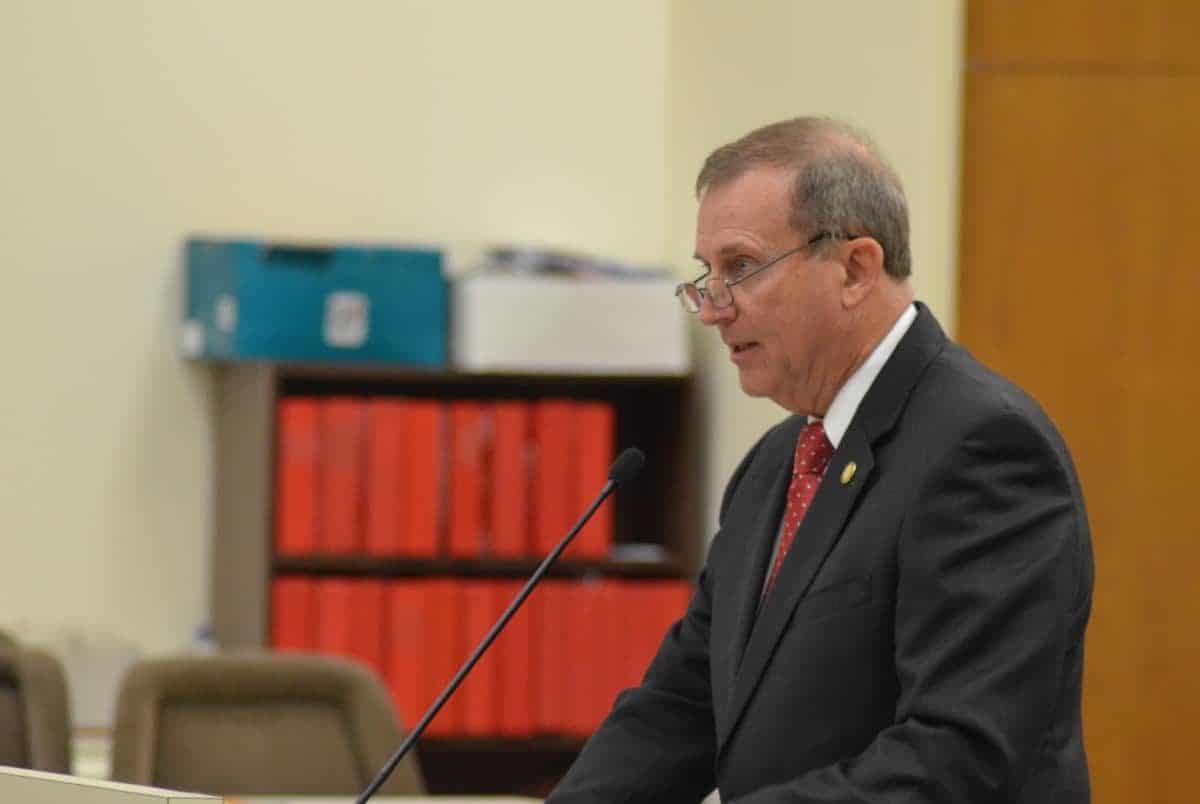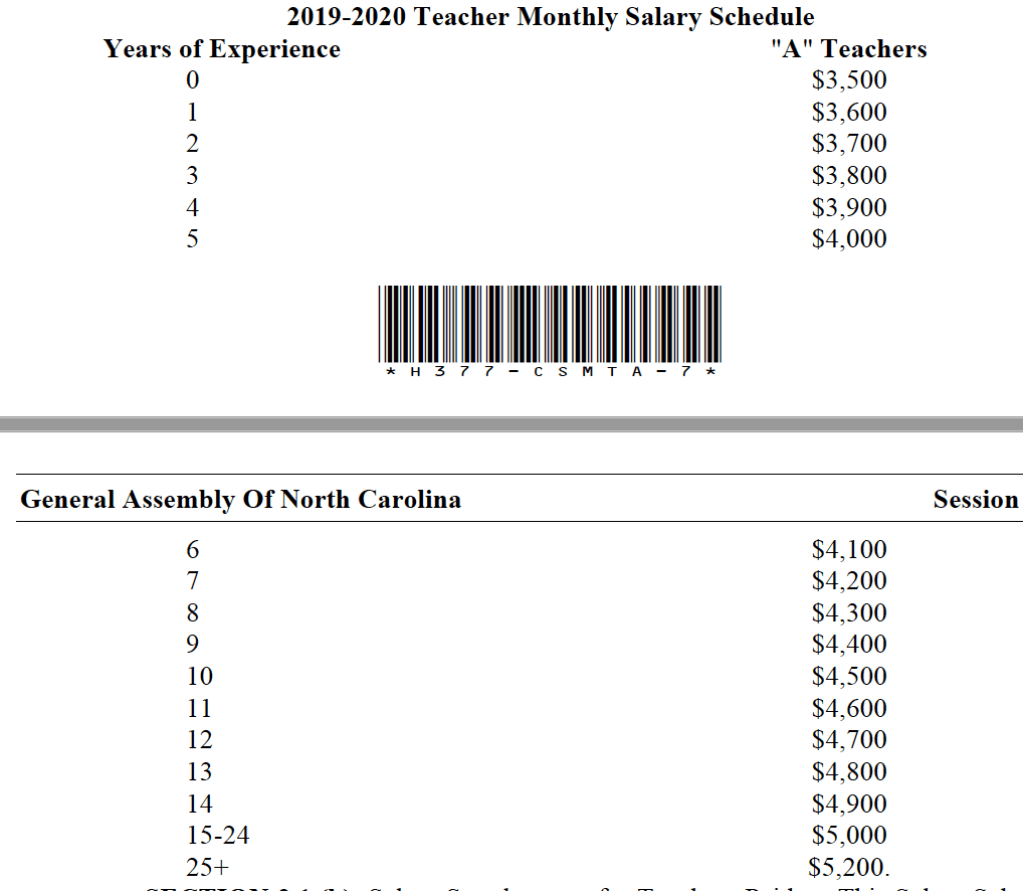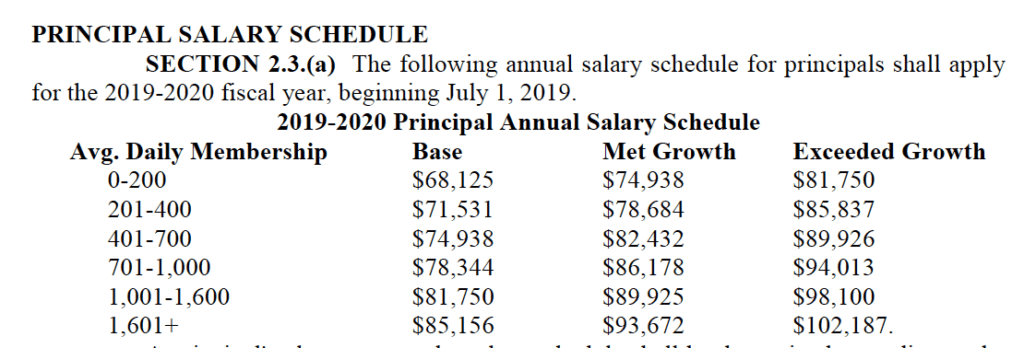

A bill endorsed by a state Senate appropriations committee this morning would give teachers their annual step increases, but it falls short of providing the teacher pay raises that were in the budget passed by the General Assembly in June but now in limbo.
The General Assembly has been trying a strategy of passing mini-budget bills that contain piecemeal provisions from the budget that Gov. Roy Cooper vetoed. It’s an attempt to get much of the budget passed without actually overriding Cooper’s veto. But the catch is that the legislature is running these bills only for non-controversial budget provisions. That ensures that Cooper will either sign the bills or possibly suffer political blowback if he doesn’t. Some Democrats in the committee took issue with that strategy.
“I can’t agree on piecemealing,” said Sen. Gladys Robinson, D-Guilford. “I cannot agree on that.”
The bill provides the annual salary increases that teachers usually receive for moving up in experience, otherwise known as step increases.


But the teacher pay raises that were in the vetoed budget are absent, largely because there is a considerable divide between what was in that budget and what Cooper and the Democrats wanted.
The budget included an average 3.9% pay raise over two years, but all new raises would go to teachers with 16 years of experience or more. Cooper’s plan would have included an average 9.1% increase for teachers, as well as the restoration of master’s pay for newly hired teachers.
The bill that passed the Senate committee today does, however, include the principal pay raises that were in the full budget.
The principal pay raise is an average 6.2% increase in pay for principals, providing $15 million extra in both years for the raises.


The bill also includes the principal bonuses that were in the vetoed budget. Principals who oversaw a school that was in the top 50% of academic growth for the previous school year will get the bonuses.


Assistant principals, on the other hand, are still left waiting in the new bill. That’s because assistant principal pay is tied to teacher pay, which means that unless teachers get a raise, assistant principals won’t. They would, however, get their step increases. Assistant principals get the same pay as teachers with equivalent experience, plus 19%.
Sen. Harry Brown, R-Onslow, chair of the appropriations committee, said the purpose of the bill was just to pass a piece of the budget that drew general agreement.
“I don’t think anyone wants to argue that the teachers don’t deserve their step increases,” Brown said. “And I don’t think anyone wants to argue about the principal piece.”
Brown said discussions were continuing about teacher raises.
“When we can come up with an agreement, you will probably see that piece,” he said. “But at this point, there is no agreement.”
Sen. Terry Van Duyn, D-Buncombe, challenged Brown to explain who was having discussions about teacher pay raises.
“Do you mean that you are sitting down with the governor and other interested parties and working on a negotiation?” she asked.
Sen. Don Davis, D-Pitt, also challenged Brown, asking whether there had been discussions with Cooper’s administration indicating that Cooper was in agreement on this piece of the budget.
“I’ve heard no one from the administration say that they think teachers shouldn’t get their step increases,” Brown said.
Robinson also chimed in, criticizing the fact that the bill doesn’t address teacher pay raises.
“It doesn’t address the major issue, and I don’t think we’ve had any discussion about that,” she said, adding later: “I’m not a part of any conversation.”
A second bill that passed Senate appropriations included the personnel pay increases that were part of the community college system’s budget priorities. The bill provides $12.4 million recurring in the first year and $24.8 million recurring in the second year for community college personnel.
With that and a bill now before the governor for his signature, all of the budget provisions pertaining to the community college system are now nearing fruition.
Despite this strategy of using standalone bills to get around Cooper’s veto without actually overriding it, there is still a chance that lawmakers will ultimately pass their original budget. In a surprise voting session last month, House legislators overrode Cooper’s veto while most Democrats were absent. The Senate has not yet held its vote, but when it does, it will be no surprise. The Senate rules say the vote can’t be held without at least a day’s notice.


